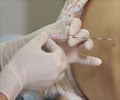Researchers have pinpointed the top 5 perioperative procedures that are supported by least amount clinical evidence that could help providers make cost-effective treatment decisions

The "Choosing Wisely" campaign is an ongoing effort by the American Board of Internal Medicine Foundation to help physicians become better stewards of health care resources. The Physician's Charter, a similar initiative, was issued in 2002 and outlined the physician's responsibilities to ensure access to high quality care by practicing evidence-based medicine, cost-effectively, and maintaining trust by minimizing conflicts of interest. This initiative was adopted by the ASA and more than 130 other organizations.
"The elimination of low-value services in low-risk patients represents a substantial savings, but we needed some consensus from our peers as to what the top least-valued services and procedures were," said the study's lead author, Onyi C. Onuoha, MD, MPH, assistant professor of Anesthesiology and Critical Care.
The researchers surveyed their peers on 18 items. First, practicing academic anesthesiologists affiliated with the Society of Academic Anesthesiology Associations responded, narrowing the list to 11 items. The list was then disseminated to the Association of University Anesthesiologists and to a subset of ASA members.
Respondents were overwhelmingly male, from academic practice settings, in practice for more than 20 years and working with the leadership of the ASA.
Survey respondents were asked to report their feedback on each clinical item across five domains, including frequency in practice, impact on quality of care, impact on cost of care, evidence supporting the activity, and the ease in implementation of avoidance.
Advertisement
- • Baseline laboratory studies in healthy patients without significant systemic disease when blood loss during surgery is expected to be minimal.
- • Baseline cardiac testing or cardiac stress test in asymptomatic stable patients with known cardiac disease undergoing low-risk or moderate-risk noncardiac surgery.
- • Routine use of PAC (pulmonary artery catheter) for cardiac surgery in patients with a low risk of blood pressure complications, especially if other diagnostic tools like an echocardiogram are being used during the procedure.
- • Administration of blood in young healthy patients without ongoing blood loss and with a low-normal hemoglobin concentration, unless they show symptoms or blood pressure problems.
- • Routine administration of specific types of intravenous fluids for replacement of blood or other fluids without appropriate indications. Advertisement
"We need buy-in from the other disciplines we work with, including the patient, primary care physician and surgeon, to implement many of these changes and still provide optimal preoperative and perioperative care. There is a lot of concern among those surveyed about attempting to implement these changes in isolation," says the study's senior author, Lee Fleisher, MD, chair of the Department of Anesthesiology and Critical Care. "Still, we believe that spreading awareness and encouraging physicians of varying disciplines to 'Choose Wisely' in delivering care is the first step in instituting change."
Source-Eurekalert











